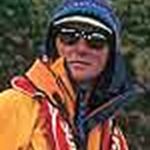
Brent Houston
Brent has been a wildlife enthusiast all his life and a professional naturalist since 1992. He continues to be involved with research projects all over the world, including seven years in the U.S. Antarctic Program at McMurdo and Palmer Stations, and in doing so has been able to survey nearly every penguin colony along the Antarctic Peninsula.
A long-term ecological study of the Antarctic environment has focused on Adelie, chinstrap, and gentoo penguins, brown and south polar skuas, giant petrels, blue-eyed cormorants, kelp gulls, Antarctic terns and many species of seals and whales and on life histories, population dynamics, predator-prey relationships, reproductive success, radio telemetry, foraging, diets, and how these variables are affected by pollutants, increased UV radiation, global warming, and the impacts of tourism.
After graduating from the University of Illinois, Brent attended both Colorado State and Idaho State Universities for post-graduate work in ecology, evolution and animal behavior. He began a long-term mountain lion study in Idaho, Utah and Nevada that has become a popular EARTHWATCH project. Brent has also studied and published papers on the endangered black-footed ferret, prairie dogs, badgers, mule deer, pygmy rabbits, rails, plovers, penguins, and many other Antarctic seabirds. He is currently working on a book about his wildlife experiences, and is involved with National Geographic’s television special, “Wild Chronicles”.
Brent has traveled extensively in Europe, North America, the Caribbean, Australia, New Zealand, the South Pacific, South America, The Baltic and Scandinavia, Africa (where he lived in Cape Town for six years), the Indian Ocean, the Arctic, and Antarctica.
